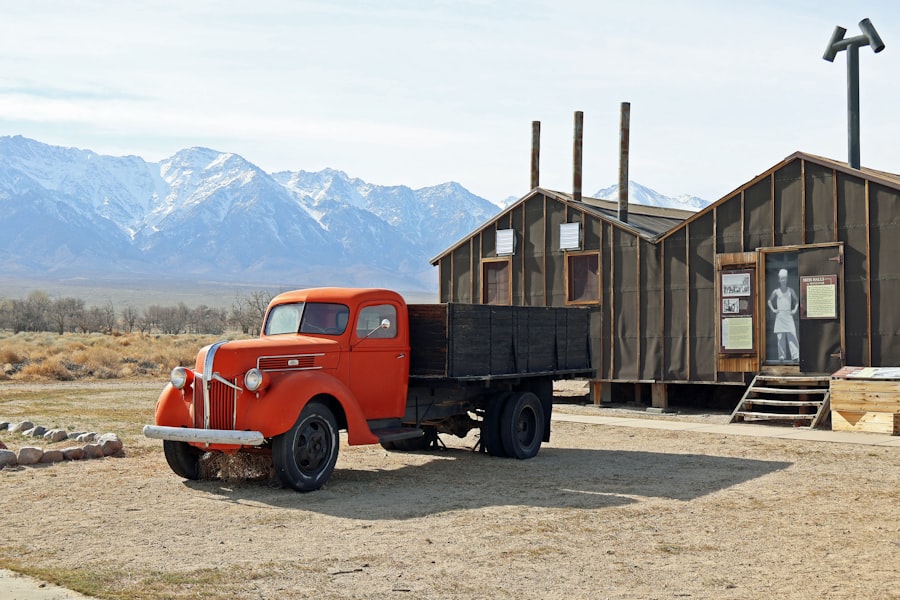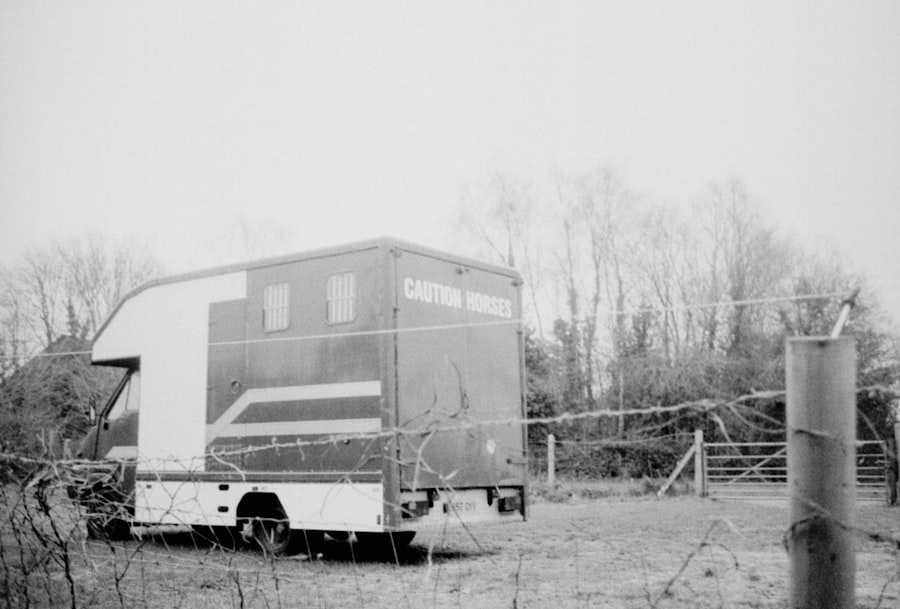In recent years, the perception of trailer homes has undergone a significant transformation. Once relegated to the fringes of the housing market and often associated with negative stereotypes, modern trailer homes have emerged as a viable and attractive option for many individuals and families. This shift can be attributed to several factors, including the growing demand for affordable housing, the desire for minimalist living, and advancements in design and construction technology.
As urban areas become increasingly congested and housing prices soar, trailer homes offer a practical solution that combines mobility with comfort. The rise of modern trailer homes is also fueled by a cultural shift towards sustainability and simplicity. Many people are seeking to downsize their living spaces in favor of a more intentional lifestyle that prioritizes experiences over possessions.
This trend has led to an increase in the popularity of tiny homes and mobile living, with trailer homes often serving as a perfect intersection of these movements. The modern trailer home is no longer just a temporary dwelling; it has evolved into a stylish and functional living space that caters to the needs of contemporary homeowners.
Key Takeaways
- Modern trailer homes have gained popularity due to improved design and amenities.
- Trailer homes offer cost-effective and flexible living solutions.
- New models feature customizable options and eco-friendly features.
- Financing options make purchasing trailer homes more accessible.
- Location and community amenities are key factors in choosing a trailer home site.
Advantages of Choosing a Trailer Home
One of the most compelling advantages of choosing a trailer home is affordability. Compared to traditional houses, trailer homes typically come with a significantly lower price tag, making them accessible to a broader range of buyers. This affordability extends beyond the initial purchase price; lower utility costs, reduced property taxes, and minimal maintenance expenses contribute to long-term savings.
For first-time homebuyers or those looking to downsize, trailer homes present an attractive option that allows for financial flexibility without sacrificing quality of life. Another notable advantage is the mobility that trailer homes offer. Unlike traditional homes, which are fixed in place, trailer homes can be relocated with relative ease.
This feature appeals to individuals who value travel or those who may need to move for work or personal reasons. The ability to take one’s home along on adventures or relocate to different communities provides a sense of freedom that is often absent in conventional housing. Additionally, many modern trailer parks are designed with community in mind, fostering connections among residents while providing access to shared amenities.
Design and Amenities of New Trailer Homes

Modern trailer homes have come a long way from their predecessors in terms of design and amenities. Today’s models often feature open floor plans, high ceilings, and large windows that create a sense of spaciousness and light. Many manufacturers prioritize aesthetics, offering a variety of styles that range from rustic charm to sleek contemporary designs.
The use of high-quality materials and innovative construction techniques has resulted in homes that are not only visually appealing but also durable and energy-efficient. Amenities in new trailer homes have also seen significant improvements. Many models come equipped with full-sized kitchens, luxurious bathrooms, and spacious living areas that rival those found in traditional homes.
Features such as energy-efficient appliances, smart home technology, and eco-friendly materials are increasingly common, allowing homeowners to enjoy modern conveniences while minimizing their environmental impact. Outdoor living spaces, such as decks and patios, are also popular additions that enhance the overall living experience by providing areas for relaxation and entertainment.
Cost-Effective Living in a Trailer Home
| Metric | Average Value | Notes |
|---|---|---|
| Initial Purchase Cost | 15,000 – 50,000 | Varies by size, age, and condition |
| Monthly Utility Costs | 100 – 200 | Includes electricity, water, and heating |
| Property Taxes | 200 – 600 per year | Depends on location and land ownership |
| Maintenance Costs | 500 – 1,000 per year | Repairs, upkeep, and improvements |
| Average Space | 300 – 800 sq ft | Smaller than traditional homes |
| Energy Efficiency | Moderate to High | Depends on insulation and appliances |
| Mobility | High | Can relocate easily compared to traditional homes |
| Monthly Rent (if on leased land) | 300 – 600 | Varies by park and location |
Cost-effective living is one of the primary reasons many individuals and families are gravitating towards trailer homes. The initial investment is often much lower than that of traditional housing, but the savings do not stop there. Trailer homes typically have lower utility bills due to their smaller size and energy-efficient designs.
Heating and cooling costs are reduced, and many new models come equipped with energy-saving appliances that further decrease monthly expenses. Moreover, the maintenance costs associated with trailer homes tend to be lower than those for traditional houses. With fewer square feet to maintain, homeowners can save on cleaning supplies, repairs, and general upkeep.
Additionally, many trailer parks offer amenities such as landscaping and community maintenance services, which can alleviate some of the burdens associated with homeownership. This cost-effective lifestyle allows residents to allocate their resources toward experiences, travel, or savings rather than being tied down by high housing costs.
Customization Options for Trailer Homes
Customization is another appealing aspect of modern trailer homes. Unlike traditional houses that often come with fixed layouts and designs, many manufacturers offer a range of customization options that allow buyers to tailor their homes to their specific needs and preferences. From choosing floor plans to selecting finishes and fixtures, homeowners can create a space that reflects their personal style and functional requirements.
Some manufacturers even provide modular options that allow for future expansions or modifications. This flexibility is particularly beneficial for growing families or individuals who may want to adapt their living space over time. Additionally, many trailer parks encourage residents to personalize their lots with landscaping or outdoor features, further enhancing the sense of ownership and individuality within the community.
Financing Options for Purchasing a Trailer Home

Financing a trailer home can be more straightforward than one might expect. While traditional mortgages may not always be available for mobile or manufactured homes, there are various financing options tailored specifically for these types of properties. Many lenders offer personal loans or specialized financing programs designed for mobile home purchases, which can make the process more accessible for buyers.
Additionally, some trailer parks provide financing assistance or partnerships with local banks to facilitate the purchasing process for prospective residents. This can include options such as rent-to-own agreements or lease-to-own arrangements that allow individuals to gradually invest in their home while enjoying the benefits of living in a trailer community. Understanding these financing avenues can empower potential buyers to make informed decisions about their investment in a trailer home.
Location Considerations for Trailer Home Communities
When considering a trailer home, location plays a crucial role in the overall experience of living in one. Many modern trailer parks are strategically situated near urban centers or popular recreational areas, providing residents with easy access to amenities such as shopping, dining, and entertainment options. Proximity to nature trails, parks, or lakes can also enhance the appeal of certain communities, attracting those who value outdoor activities.
Moreover, the sense of community within trailer parks can significantly impact residents’ quality of life. Many parks foster a friendly atmosphere where neighbors know each other and participate in community events. This social aspect can be particularly appealing for families or retirees looking for companionship and support within their living environment.
When choosing a location for a trailer home, it’s essential to consider not only the physical surroundings but also the community dynamics that will shape daily life.
Sustainability and Eco-Friendly Features in New Trailer Homes
Sustainability has become an integral focus in the design and construction of modern trailer homes. As awareness of environmental issues grows, many manufacturers are incorporating eco-friendly features into their models. This includes using sustainable materials such as reclaimed wood or recycled steel in construction, as well as energy-efficient appliances that reduce overall energy consumption.
Additionally, many new trailer homes are designed with features such as solar panels or green roofs that further enhance their sustainability credentials. These innovations not only reduce the carbon footprint of the home but also provide homeowners with opportunities for energy independence and lower utility costs over time. By choosing a modern trailer home equipped with eco-friendly features, residents can enjoy a comfortable lifestyle while contributing positively to the environment.
The evolution of trailer homes reflects broader societal trends towards affordability, sustainability, and community-oriented living. As more people recognize the benefits associated with this housing option, it is likely that modern trailer homes will continue to gain popularity as an attractive alternative to traditional housing solutions.



